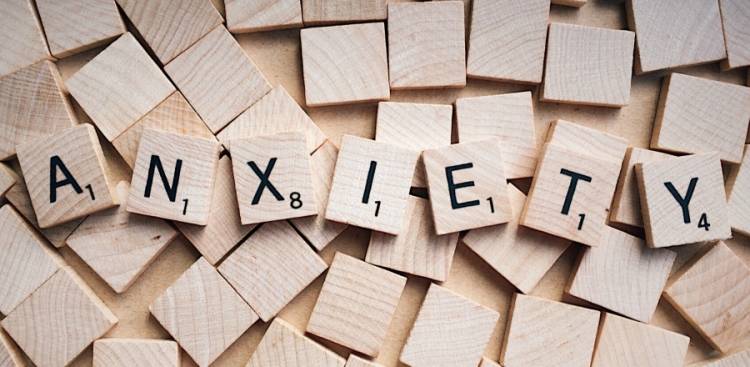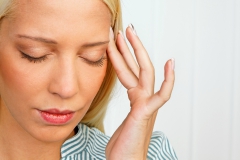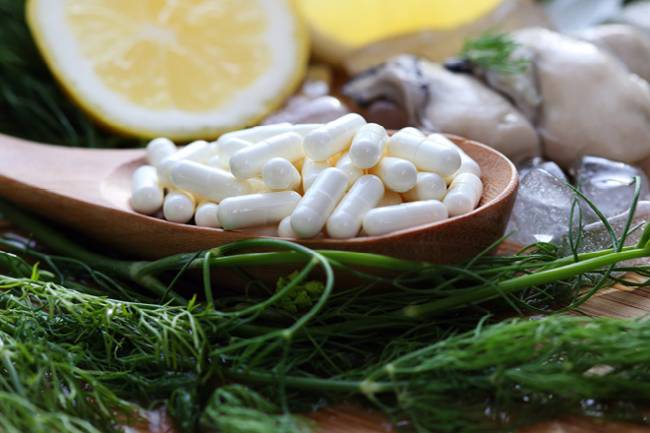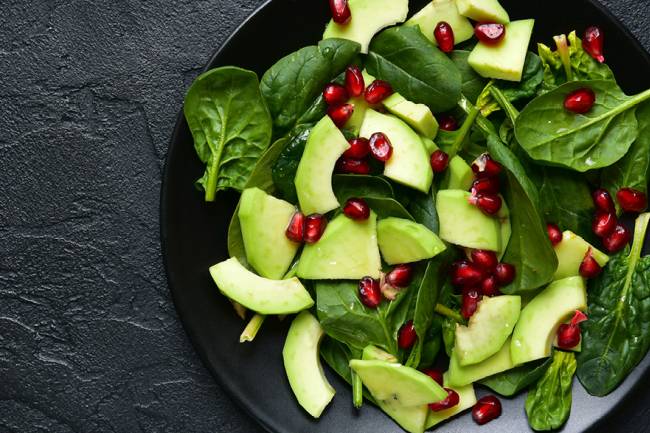Best Supplements for Anxiety and Stress

It has been estimated that almost 17% of us will suffer from anxiety issues at some point in our lives. Milder cases are likely to be even more prevalent than that.
Perhaps it's little wonder, then, that so many people are searching for the best supplements for anxiety and stress.
Fortunately, scientific studies have revealed a range of different natural supplements that may help your condition. Here are some of the most popular options on the market...
Valerian
 Valerian in probably one of the best-known anxiety supplements of all. It has been used for generations to ease away feelings of mild stress and to help encourage natural sleep.
Valerian in probably one of the best-known anxiety supplements of all. It has been used for generations to ease away feelings of mild stress and to help encourage natural sleep.
Valerian is so well-established among users of natural remedies that science has started to take a considerable interest into how actually works.
As it turns out, these investigations have identified a specific compound known as “valerenic acid” as being responsible for its anti-anxiety properties. But what does valerenic acid actually do in the body?
The human nervous system is a wonderfully complex system, with numerous chemical messages passing around the body. One important element in this system is a chemical messenger (or “neurotransmitter”) known as gamma-Aminobutyric acid.
More commonly known as GABA, it binds to specific receptors within the body, at which point it can affect the transmission of messages. These GABA receptors that are a common target for many drugs; both recreational and pharmaceutical.
To give some specific examples, part of the effect experienced after consuming alcohol, barbiturates or steroids come from interactions with GABA receptors. However, this is also where valerenic acid has been shown to work, calming the transmission of messages that are otherwise interpreted in the form of stress or anxiety.
St. John's Wort
Paracelsus, a 16th century doctor, referred to St John's Wort as “arnica of the nerves” because of how powerful its effects on the nervous system are believed to be. Even today, many hundreds of years later, St. John's Wort is still a popular natural remedy for cases of stress and anxiety, or even for cases of mild depression.
A study looking at the safety and efficacy of St. John's Wort summarized that it's “high efficacy and tolerability is unquestionable” but furthermore highlighted the lack of major side effects seen in users.
A meta-analysis pooled the results of 30 previously published studies, looking at the effectiveness of St John's Wort. They found that even when such a large data set was combined and analyzed, St. John's Wort still showed a “significant advantage” over a placebo. The same study also concluded that St John's Wort demonstrates similar effectiveness to many synthetic antidepressants.
Indeed, a separate study in Germany, which gave St John's Wort to volunteers with more serious cases of depression, found they actually responded more positively to the plant than they did to more traditional medications.
Lastly, one study tried pitting St. John's Wort against valerian to assess the effectiveness of both supplements. It found that while anxiety symptoms improved after taking either supplement, the most rapid changes were experienced when both supplements were taken together.
This evidence suggests that a great natural remedy for anxiety is therefore to purchase both St John's Wort and Valerian root extract, and then use them both synergistically. Shop for St. John's Wort here.
Omega 3
 Over the years, omega 3 fats have become established as some of the most popular supplements in the world. Many of these benefits are linked to the anti-inflammatory properties they display, which have made them popular with people suffering from a range of joint conditions or from high cholesterol. The evidence also suggests, however, that omega 3 oil may also help in cases of anxiety or stress.
Over the years, omega 3 fats have become established as some of the most popular supplements in the world. Many of these benefits are linked to the anti-inflammatory properties they display, which have made them popular with people suffering from a range of joint conditions or from high cholesterol. The evidence also suggests, however, that omega 3 oil may also help in cases of anxiety or stress.
The lives of university students can vary considerably in their levels of stress. A typical day is reasonably relaxed, with lectures and coursework to do. Every so often, however, exam season looms and sensations of stress or anxiety can rise significantly.
One scientific study took place around exam time, when stress hormones tend to be at their highest. Students either took a large dose of omega 3 oil, or a placebo that was designed to mimic the typical ratio of fatty acids seen in a western diet. In comparison to the control group, those medical students taking high doses of omega 3 oils experienced a 20% reduction in anxiety symptoms, as measured by levels of stress hormones in their blood; an undoubtedly impressive result.
In another study, 500 patients suffering from stress, depression or anxiety were followed for a period of two years. Throughout this time each participant underwent regular testing for their condition, as well as keeping a lifestyle and diet journal.
The results showed that those individuals who ate a reasonable amount of fish - which is high in omega 3 oils - tended to be on average 30% less likely to suffer their condition over the long term. One of the nice things about omega 3 oils, of course, is that you don't necessarily need to take it in supplement form (unless you want to). As it turns out, just eating more seafood each week will help to boost your levels, and may have a beneficial impact on feelings of anxiety or stress.
Rhodiola
Rhodiola is a short, flowering plant typically found in the colder parts of the world. Long used as a natural remedy for cases of mild depression and fatigue, more recently studies have demonstrated how rhodiola can also benefit cases of anxiety.
One such study involved 80 individuals who were suffering from long-term anxiety problems. One half of this group was given 400mg of rhodiola per day (spread evenly across the day) while the other participants received no treatment whatsoever. In just two weeks the experts reported that the rhodiola group experienced a “significant reduction in self-reported anxiety, stress, anger, confusion and depression”.
Another longer-term study took place over 4 weeks, and used a similar dose. This time the testing was more rigorous, with participants completing seven different assessments at regular intervals throughout the study period. The scientists noted that individuals taking rhodiola began to show improvements in as little as three days, and that by the end of the study period “all tests showed clinically relevant improvements” for symptoms including stress.
One final point worth mentioning about rhodiola is its safety profile. Scientists investigating the potential side effects of rhodiola pointed to a “lack of interactions with other drugs” together with the absence of serious adverse effects. They therefore concluded that rhodiola is “attractive for use as a safe medication”.
Magnesium
 Magnesium plays a huge number of different roles in the body, being involved in an estimated 300 different chemical processes. These include functions of the immune system, heart rate and bone mineral density. It is also actively involved in the transition of chemical messages through the nervous system.
Magnesium plays a huge number of different roles in the body, being involved in an estimated 300 different chemical processes. These include functions of the immune system, heart rate and bone mineral density. It is also actively involved in the transition of chemical messages through the nervous system.
At the same time, however, nutritional surveys have found that roughly 70% of men and 80% of women don't meet the daily recommended magnesium intake. Worse, even individuals who are consuming enough magnesium can still suffer the effects of deficiency, largely thanks to the intricate balance of calcium and magnesium in the body. High calcium diets have the potential to impact magnesium balance, leading to health issues.
One of the rather more surprising discoveries in recent years is the potential link between dietary magnesium and feelings of stress and anxiety. One highly relevant study took place in Norway, in which 5,708 individuals self-reported their typical diet. At the same time they also filled in a questionnaire designed to assess any symptoms of stress, anxiety or depression.
The results allowed scientists to estimate the daily intake of various vitamins and minerals, while seeking any obvious relationships between dietary constituents and depressive symptoms. What became clear was a clear inverse relationship between depressive symptoms and magnesium intake. Other studies have tried to assess the impact of giving relatively large doses of magnesium (125-300mg per day) to individuals who suffer from anxiety or stress.
Such treatments have led to “rapid recovery” according to scientists, even in major cases of depression. Shop for Magnesium here.
Vitamin B
There are eight different vitamins which make up the vitamin B complex. While not all are implicated in cases of anxiety and stress, studies have suggested that several B vitamins can have an effect on overall mood.
In one detailed study, 9670 volunteers completed a food frequency survey, and then underwent testing for any symptoms of depression, which included stress and anxiety. The results showed a strong relationship between the amount of vitamins B12 and B9 (folate) with depressive symptoms.
Elsewhere, volunteers were prescribed a vitamin B complex supplement to consume daily for a period of three months. At the end of the trial the active treatment group reported significantly lower experiences of strain and depression when compared to a non-supplemented control group. Vitamin B is particularly interesting as it is a so-called water soluble vitamin.
This means that the body doesn't store B vitamins; instead any excess is rapidly excreted. A regular dietary supply is therefore important if deficiencies are not to arise. Taking a daily vitamin B complex supplement may therefore be a great way to avoid such issues.
Shop for Vitamin B Complex here.
Kava kava
 A well-known supplement for anxiety and stress is known as “kava kava” - often shortened to just “kava”. The kava plant, Piper methysticum, originates in the Pacific Islands, where an extract of the root is used both for pleasure and for medicinal purposes.
A well-known supplement for anxiety and stress is known as “kava kava” - often shortened to just “kava”. The kava plant, Piper methysticum, originates in the Pacific Islands, where an extract of the root is used both for pleasure and for medicinal purposes.
Early investigations into the use of kava revealed high levels of potency. When compared against more traditional pharmaceutical solutions kava is said to roughly equivalent to 15mg of oxazepam or 9mg of bromazepam; classic anti-anxiety medications.
A study in which patients took 120mg of kava per day for a period of six weeks showed significant improvements in anxious episodes, with 26% of the kava group showing remission. This figure stands in sharp contrast to the 6% of the untreated participants who showed similar results.
This all sounds very positive, and when searching on discussion forums or social media posts you're likely to find that kava is mentioned over and over as one of the most effective supplements for anxiety and stress. It certainly features in dozens of blog posts around the web. There is, however, a fly in the ointment.
In 2003 kava was banned from sale in Canada and the UK, as well as several other EU nations such as Germany and Switzerland. The reason for this ruling was the suspicion that kava root can damage the liver. Today, over 100 cases of liver damage are believed to be associated with the intake of kava.
Interestingly, the World Health Organisation has recently recommended further investigations, suggesting that “aqueous extracts” may be far safer to use. As yet, however, no obvious change to scientific opinion or the legislation surrounding kava, is evident.
As things stand right now, therefore, we would advise you to avoid taking kava until further research is carried out. While the results of past studies look quite exciting at face value, it seems that the risk isn't worth the potential benefit, especially when there are other equally potent supplements for cases of stress and anxiety.
Conclusion
The scientific community has identified a range of supplements that have the potential to help anxiety and stress. Often known to experts as “anxiolytics”, it seems that many traditional remedies have plenty of rigorous science supporting their effectiveness.
From valerian to St John's Wort, from magnesium to vitamin B, it is reassuring to note just how many potential options there are available.
In closing, while the science is quite convincing, it is worth mentioning that chronic stress and anxiety can be very bad for your health. Furthermore, they can be an indication of rather more serious health problems, as they are often associated with mild depression.
Consequently, we would advise all readers to consider seeking professional medical assistance to rule out such conditions. Furthermore, seeking the guidance of your doctor before commencing any supplementation is often wisest, to ensure you receive accurate, bespoke advice from the health professional that knows you best.
Sources:
https://bmccomplementalternmed.biomedcentral.com/articles/10.1186/1472-6882-14-267
https://www.sciencedirect.com/science/article/pii/S0944711312002528
https://www.sciencedirect.com/science/article/pii/S0944711309002906
http://journals.sagepub.com/doi/abs/10.1080/00048670802534408
http://www.nutritionalmagnesium.org/optimum-calcium-magnesium-ratio/
https://www.medical-hypotheses.com/article/S0306-9877(06)00103-4/abstract
http://www.jabfm.org/content/28/2/249.short
https://oawhealth.com/article/significant-magnesium-deficiency-in-depression/
https://onlinelibrary.wiley.com/doi/full/10.1002/hup.1229
https://onlinelibrary.wiley.com/doi/full/10.1111/j.1365-277X.2008.00931.x
http://europepmc.org/abstract/med/15211398
https://www.sciencedirect.com/science/article/pii/S0024320502015667
https://www.sciencedirect.com/science/article/pii/S0944711304703487
https://www.sciencedirect.com/science/article/pii/S0889159111004685
https://link.springer.com/article/10.1007%2Fs00394-007-0671-x
https://www.sciencedirect.com/science/article/pii/S094471131000036X
https://onlinelibrary.wiley.com/doi/full/10.1002/ptr.5486
https://onlinelibrary.wiley.com/doi/full/10.1002/ptr.3712
http://go.galegroup.com/ps/anonymous?id=GALE%7CA450038824&sid=googleScholar&v=2.1&it=r&linkaccess=abs&issn=22003886&p=AONE&sw=w
http://europepmc.org/abstract/med/10711131
https://link.springer.com/article/10.1007/s00213-009-1549-9
https://onlinelibrary.wiley.com/doi/full/10.1002/ptr.1609
https://www.ncbi.nlm.nih.gov/pmc/articles/PMC2048557/
https://journals.lww.com/psychopharmacology/Abstract/2013/10000/Kava_in_the_Treatment_of_Generalized_Anxiety.9.aspx

 Nicole
Nicole 






















